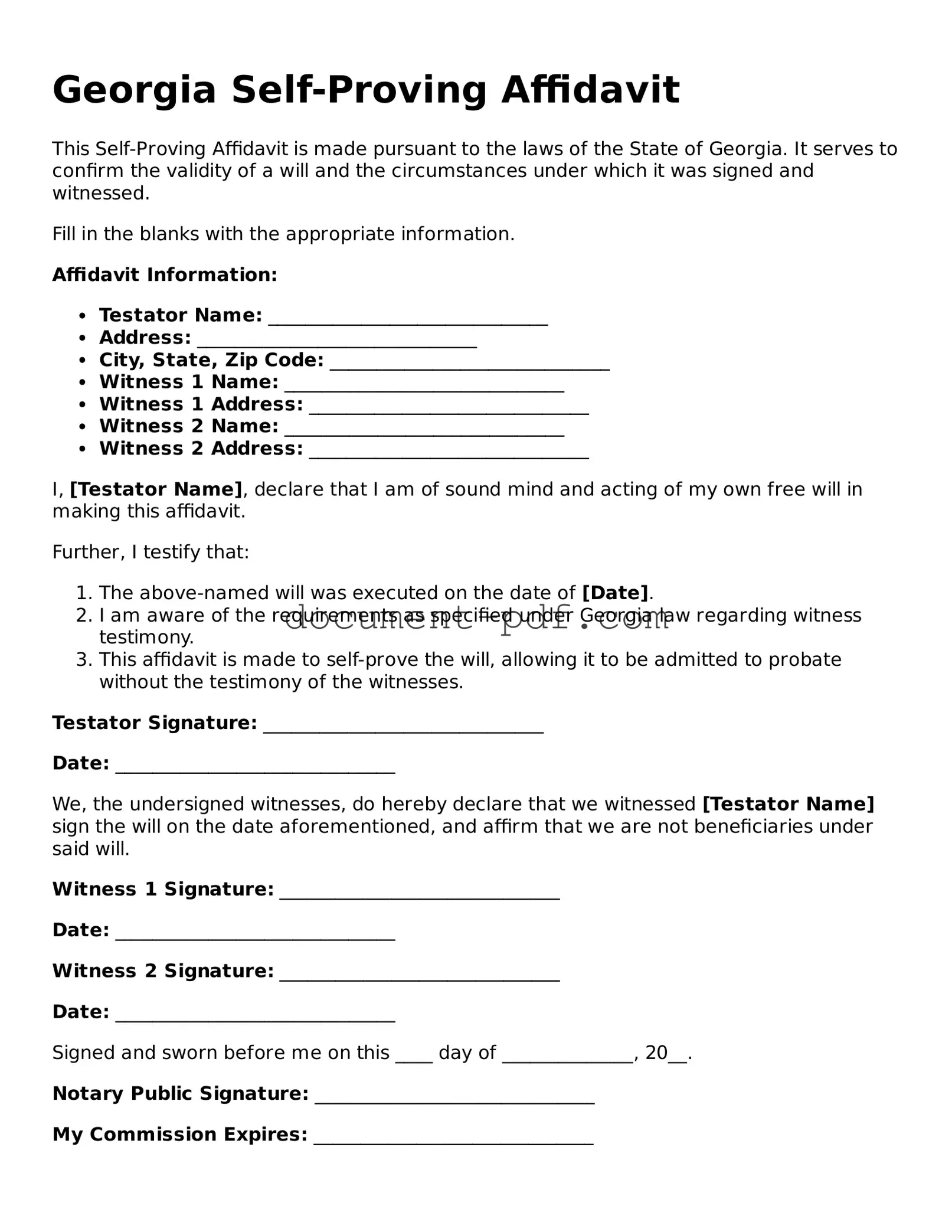Attorney-Verified Georgia Self-Proving Affidavit Template
The Georgia Self-Proving Affidavit is a legal document that allows a testator's will to be validated without the need for witnesses to testify in court. This form simplifies the probate process by confirming that the will was executed properly. To ensure your estate plan is clear and enforceable, consider filling out the form by clicking the button below.
Access Self-Proving Affidavit Editor Here

Attorney-Verified Georgia Self-Proving Affidavit Template
Access Self-Proving Affidavit Editor Here
Finish the form without slowing down
Edit your Self-Proving Affidavit online and download the finished file.
Access Self-Proving Affidavit Editor Here
or
Click for PDF Form
